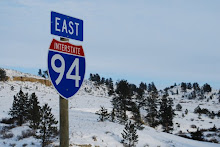For starters, people seem to actually care about saving the giant panda. Something about pandas being cute and fuzzy. Damn "aw" factor. At least journalists have the good sense to breed in captivity.
TIME published an excellent article recently titled "How to Save Your Newspaper." I feel a bit dumb not having realized the facts included before, but when you work one aspect of the industry for so long you get blinded to the whole. Through bar-or-brewery chats with fellow journos the past few months, I've struggled for an explanation on why this is happening and what can be done. According to Walter Isaacson, the answer is simple: charge for online content.
There is, of course, more to it than that. But the point made that print journalism has become too dependent on the advertising leg of its revenue stool is undeniably valid. It's the bamboo to our panda. Readership is up. Just ask any of the kids on campus or any recent graduate. We younglings are tapped into a steady stream of online news and information, and we actually seem to care (I know, right!?). So why do we find the industry floundering? Because net advertising isn't nearly as lucrative as print advertising. Remember those Target or Sears fliers in the Sunday issue Mom always breezed through for deals? Now think of those banner ads on Web sites. Not so effective, I think.
Isaacson's solution, minus the subtleties, is to charge for online news service the same way newspapers and mags have always charged for print material. After all, what's the difference? Who says info on the net has to be free? It's an idiotic model that we seem to be stuck in, much like a rut. We need to bust that rut. Traditional subscription services limit the potential for impulse access, so Isaacson suggests a pay-per-use model. Not a bad plan. Sort of an iTunes for news. Perhaps Lee or Gannett or McClatchy could develop a company-wide debit system. So many dollars with the click of one button buys you a day's access to any of the company's online publications.
Some of the independents have already taken Isaacson's suggestion to heart, months before he wrote the damn article. Exhibit A: the Choteau Acantha, a small-town independent weekly I worked for two consecutive summers. Melody Martinsen (editor) and her husband Jeff (business manager) felt the urge to revamp the Acantha's Web site last year. The site was bare-bones when I worked there, the week's stories and a few photos. Now, Web users can view the paper as-printed for a modest fee. Granted the process is pretty simple; Mel and Jeff post the pdfs for the week's paper and allow paying viewers to download. But they've realized something the Big Wigs haven't yet: the revenue stool has another promising leg, that of consumer compensation.
In this way, journalism can finally steer away from those years of dependence on advertising. There's a strong sense at several publications I could name that content is sometimes written more in the interest of advertisers than readers. Tsk, tsk. Lesson number one is write for your audience. If we journalists aren't tackling the stories that matter to readers, what are we beating the shit out of our livers for? "I'm a journalist" isn't the most promising pickup line. If we lean more on the folk we're writing for, perhaps we can kick this pesky bamboo addiction.
Subscribe to:
Post Comments (Atom)

3 comments:
Nice post, but I'm gonna have to disagree on the end point about being beholden to readers, not advertisers (Isaacson's point, not yours). Local news networks and cable news networks like KPAX or CNN have no "subscriber" revenue stream. It's all advertising. And as much as we all complain about TV news, I don't think they're cow-towing to advertisers' demands. From a sustainable business model perspective, I doubt it'd work for newspapers to depend on advertising dollars. TV news can do it simply because TV ad rates are so high. But to Isaacson's claim that dependence on advertising dollars hurts coverage is simply wrong and unfounded, and the editors of TIME never should've let it into the article.
Good point, but countered. It's no surprise that broadcast news is more shallow than print. Lots of fluff, the puppy on the front page stuff but more frequent. If you disagree, watch any of Bismarck's local news stations. You'd get better news from a tabloid.
I want to hear more about the panda
Post a Comment